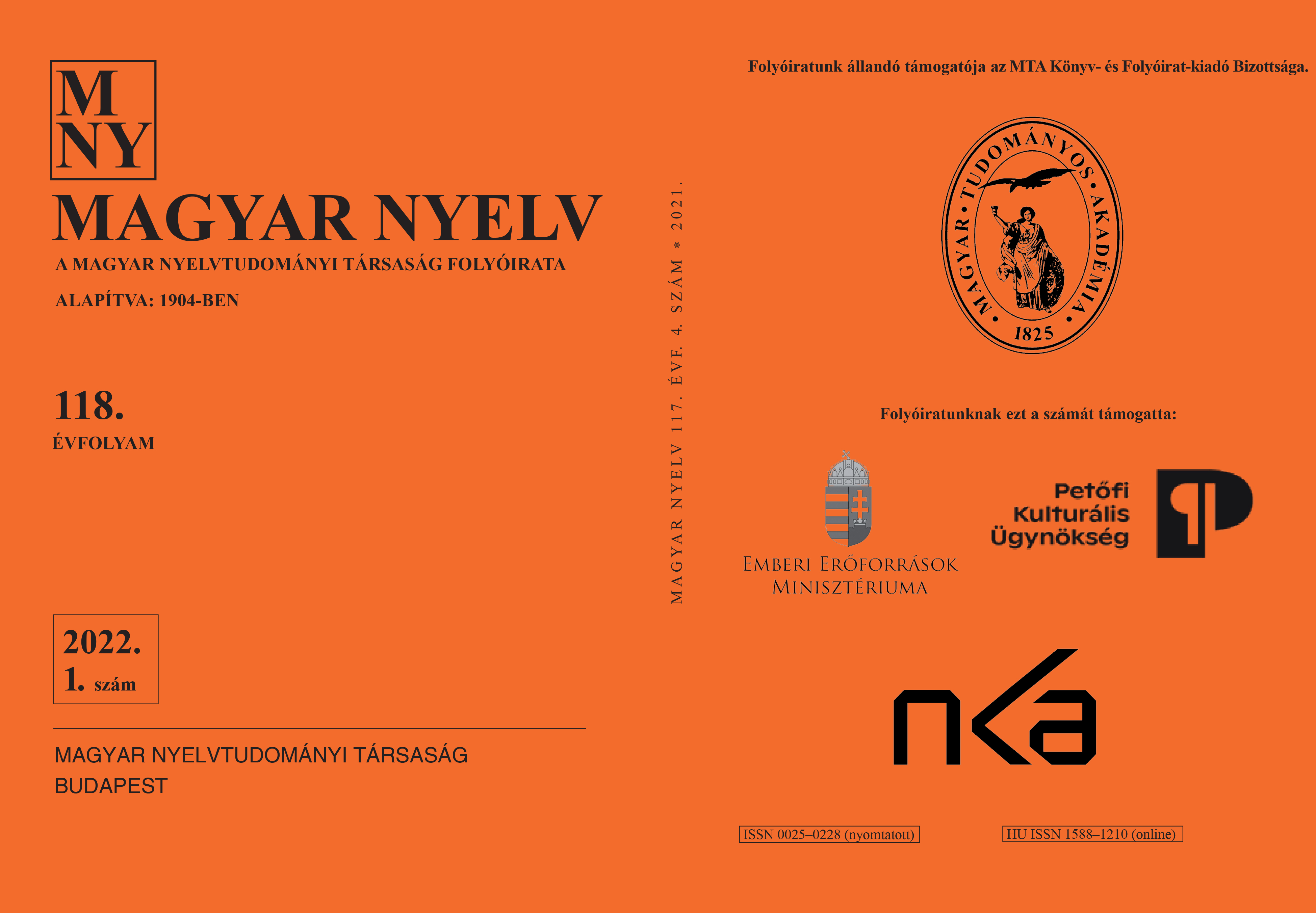Loránd Benkő, mentor of Hungarian linguistics in Transylvania
DOI:
https://doi.org/10.18349/MagyarNyelv.2022.1.21Keywords:
Hungarian school of linguistics from Kolozsvár/Cluj, Attila T. Szabó, isolation from Hungary, Hungarian Historical Dictionary of Transylvania, Atlas of Hungarian Dialects in Romania, Moldavian Hungarians (Csángós), Szeklers, direct contactsAbstract
An outstanding personality of 20th-century Hungarian linguistics, Loránd Benkő, born a hundred years ago, had close ties to Transylvania and the Hungarian linguistics of Transylvania. He was born in Transylvania, studied at the University of Kolozsvár/Cluj and began his professional career at the Transylvanian Institute of Science under the direction of Attila T. Szabó. His significant research topics were also largely Transylvanian, and he succeeded in shedding new light on the origins of the Hungarian ethnic groups in Transylvania with a wealth of onomastic and historical linguistic data. In the isolation of Hungarian linguistics of Transylvania after World War II, Loránd Benkő played an important role in publishing the works of linguists from Kolozsvár/Cluj as the head of university and academic institutions and the editor of the review Magyar Nyelv (The Hungarian Language). It is mainly due to his support that the great syntheses of Transylvanian linguistics were published after 1990: the 14-volume Hungarian Historical Dictionary of Transylvania (Erdélyi magyar szótörténeti tár) and the 11-volume Atlas of Hungarian Dialects in Romania (A romániai magyar nyelvjárások atlasza), as well as the rich material of Attila T. Szabó’s repository of historical toponymy.
Downloads
Published
Issue
Section
License
Magyar Nyelv is a Diamond Open Access periodical. Documents can be freely downloaded and duplicated in an electronic format, and can be used unchanged and with due reference to the original source. Such use must not serve commercial purposes. In the case of any form of dissemination and use, Hungarian Copyright Act LXXVI/1999 and related laws are to be observed. The electronic version of the journal is subject to the regulations of CC BY-NC-ND (Creative Commons – Attribution-NonCommercial-NoDerivatives).
The journal permits its authors, at no cost and without any temporal limitation, to make pre-print copies of their manuscripts publicly available via email or in their own homepage or that of their institution, or in either closed or free-for-all repositories of their institutions/universities, or other non-profit websites, in the form accepted by the journal editor for publication and even containing amendments on the basis of reviewers’ comments. When the authors publicize their papers in this manner, they have to warn their readers that the manuscript at hand is not the final published version of the work. Once the paper has been published in a printed or online form, the authors are allowed (and advised) to use that (post-print) version for the above purposes. In that case, they have to indicate the exact location and other data of the journal publication. The authors retain the copyright of their papers; however, in the case of an occasional secondary publication, the bibliographical data of the first publication have to be included.



